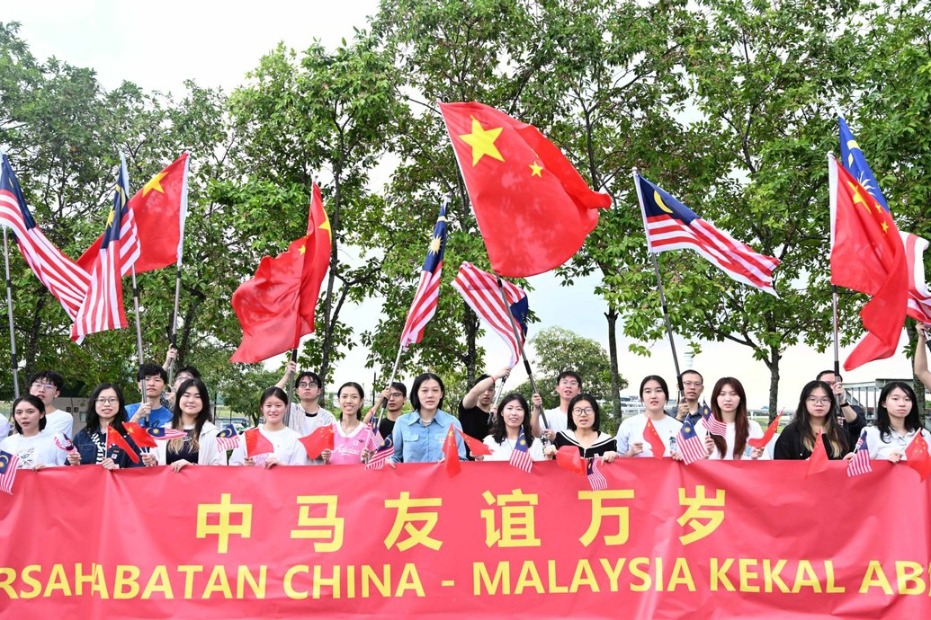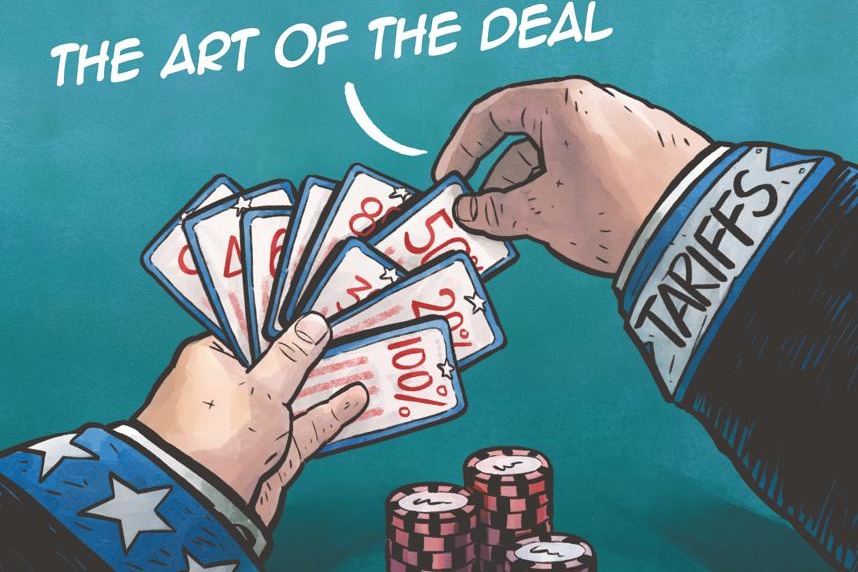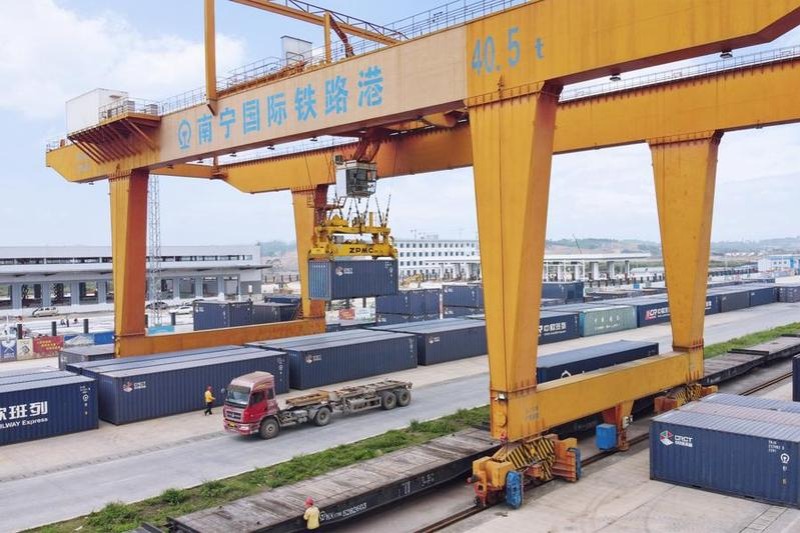Time to back BRI amid US coercion


The endorsement of the Belt and Road Initiative by more than 150 countries, through participation, speaks volumes of the initiative's relevance in global governance. The Global South countries across the Asia-Pacific, Africa and Latin America constitute the bulk of the Belt and Road partner economies.
In the past 12 years after its inauguration, the Belt and Road Initiative has helped improve infrastructure connectivity and sharpen the Global South's economic competitiveness remarkably. Alongside this, the mammoth endeavour has helped reset the modality of multilateral cooperation, making it more inclusive and equitable for the developing world.
In pursuit of the legitimate developmental priorities of the Global South countries — which have long been marginalized by the West — China has played the key role of an enabler, helping meet their needs for partnership diversification. It offers a viable alternative to the reigning hegemon's modality in the evolving world order.
While the trillion-dollar Belt and Road endeavour has become a major contributor to infrastructure finance, new multilateral development banks, such as the Asian Infrastructure Investment Bank and the BRICS New Development Bank, offer further practical solutions for narrowing the yawning infrastructure finance gap. They complement the World Bank and the International Monetary Fund in meeting the development needs of the Global South while offering an alternative option to the existing dynamics of global financial governance that favors the developed economies.
Prompted by the geopolitical ambition to stifle China's expansive growth in the sphere of global influence, Western critics have been relentlessly seeking to put the Belt and Road Initiative under microscopic scrutiny, casting aspersions on China by accusing it of pushing developing countries toward "debt traps", environmental degradation and governance failure.
Yet the initiative has engineered a paradigm shift by promoting "high-quality" development with the inclusion of the digital economy and green transition as the new economic drivers in its new phase of implementation. That being said, critics from the collective West never cease to raise new concerns over cybersecurity, digital sovereignty and cross-border data exchange protection in their bids to test the Belt and Road Initiative's resilience, purportedly in the interests of national security.
Amid such a challenging environment, the Global South countries are now facing a binary choice: either to remain an easy prey by toeing the predatory unilateral world order dictated by the West or embark on a new trajectory of building an egalitarian order in pursuit of their aspirations aligning with the evolving multipolarity.
While the US administration's tariff turmoil is taking its toll on economies worldwide, the Global South's vulnerabilities look set to be weaponized by the reigning hegemon in defence of the latter's core interests. Announcement of the present "reciprocal tariff "by Donald Trump, notably the imposition of a series of tariffs on Chinese goods (as high as 145 percent), is a naked act of intimidation to bring friends and foes alike, to their knees.
With the world still reeling from the effects of uncertainties induced by the US' capricious tariff policies, South-South cooperation may well turn out to be one of the key targets of the US administration.
In addition to subjugating individual emerging economies through multiple means of economic coercion, another upcoming shock for the Global South may be the potential retaliatory blows Trump promised to deal to some developing countries which seek to ditch the greenback in the cross-border trade settlement. In this context, the use of local currency for the purpose is not spared either. Trump's 100 percent punitive tariff intimidation directed at the BRICS grouping has, in fact, been on the cards long before the roll-out of his "reciprocal tariffs".
Against such a gloomy landscape, will the emerging economies and developing countries succumb to the US' "economic bullying"? Or will the threat be a blessing in disguise to promote cohesiveness within the Global South? Nobody is yet to have a crystal ball to gaze at for a solution.
At such a crossroad, the unfolding geopolitical reality further corroborates the necessity and relevance to build a community with a shared future in the evolving multipolar world order, more so in the face of multi-dimensional challenges amid growing protectionism and exceptionalism.
As the Belt and Road Initiative is a proven vehicle that best fits the bill of realizing the collective aspirations, the partner countries should use their wisdom by rallying behind a proven choice that is well poised to reshape their destiny, instead of offering themselves as easy prey to the reigning hegemon's economic coercion and thuggery.
The author is president of the Malaysia-based Belt and Road Initiative Caucus for Asia-Pacific. The views don't necessarily reflect those of China Daily.
If you have a specific expertise, or would like to share your thought about our stories, then send us your writings at [email protected], and [email protected].
































